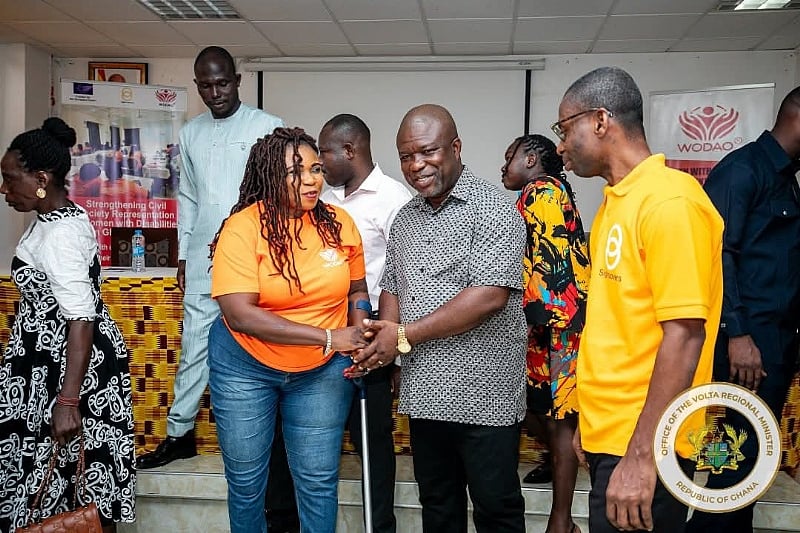Veronica Kofiedu, Executive Director of the Women with Disability Development and Advocacy Organization (WODAO), has issued a powerful call for the Ghanaian government to prioritize the needs of women with disabilities. Kofiedu argues that current policies and interventions frequently overlook the specific challenges faced by this vulnerable group, including stigma, discrimination, exclusion from decision-making processes, and widespread abuse. She stresses that these issues must be proactively addressed and integrated into national development programs from the outset, rather than treated as an afterthought. Kofiedu emphasizes the need for intentional inclusivity across government agencies and both private and public sector organizations, advocating for the active participation of women with disabilities in decision-making processes that directly affect their lives.
A key concern highlighted by Kofiedu is the alarming prevalence of physical and sexual abuse targeting women with disabilities, often with perpetrators escaping accountability. This vulnerability, she warns, exposes victims to long-term health risks, including sexually transmitted infections, and further undermines their dignity and well-being. Kofiedu’s call to action is substantiated by recent studies revealing the systemic exclusion faced by persons with disabilities. A 2025 study on climate change and disability, for instance, found that while the vast majority of persons with disabilities recognize the reality of climate change and its detrimental impact on their lives, they are rarely included in discussions or planning related to climate adaptation strategies. This exclusion effectively silences their voices and marginalizes their needs in the face of a global crisis that disproportionately affects vulnerable populations.
Further evidence of this systemic marginalization is provided by a 2024 Gender Equality and Social Inclusion (GESI) report focusing on the Volta and Oti regions. The report paints a stark picture of the challenges faced by women with disabilities, revealing significant barriers to accessing social interventions and healthcare services, particularly in the area of sexual and reproductive health. Political exclusion is also rampant, with the vast majority of women with disabilities excluded from decision-making processes. The report further highlights the challenges posed by inaccessible public transport and the heightened risk of gender-based violence faced by this vulnerable group. These findings underscore the urgent need for targeted interventions to address the multifaceted discrimination experienced by women with disabilities.
Kofiedu emphatically states that disability rights are fundamental human rights, not privileges or charitable acts. She calls on the government to mainstream disability issues into all aspects of policy development, implementation, and monitoring, emphasizing the inherent dignity and worth of all individuals. Her appeal was delivered during a stakeholder engagement organized by WODAO in partnership with Science Service International, Ireland. The event brought together a diverse range of stakeholders, including government agencies, civil society groups, NGOs, and organizations of persons with disabilities, to foster collaboration and strengthen advocacy efforts. The forum provided a platform for shared learning and the development of collaborative strategies to advance disability inclusion.
A critical point raised by Kofiedu and echoed by participants at the forum is the disproportionate impact of disasters and climate-related emergencies on women with disabilities. She highlights the inaccessibility of evacuation centers, the exclusion of those with hearing and visual impairments from emergency communications, and the increased risk of abuse faced by women with disabilities in shelters. These realities, she argues, necessitate the development of disability-friendly early warning systems, inclusive budgeting at the district level, and robust safeguarding measures to protect this vulnerable population during times of crisis. The forum also emphasized the crucial role of economic empowerment, advocating for the provision of livelihood skills and the creation of opportunities that enable women with disabilities to fully participate in society and achieve economic independence.
The stakeholder engagement underscored the importance of sustained advocacy, capacity building, and strict policy enforcement as essential mechanisms for advancing disability inclusion in Ghana. Participants emphasized the need for continuous awareness creation to promote understanding and respect for the rights of women and girls with disabilities, challenging societal stigma and discrimination. Kofiedu concluded her appeal with a call for public support, emphasizing that disability is a shared human experience and urging everyone to join the cause and hold the government accountable for upholding the rights of persons with disabilities. The event demonstrated the power of collective action and the importance of partnership between different stakeholders in driving meaningful change. The Hon. James Gunu, guest of honor at the event, reaffirmed his commitment to disability-inclusive development, highlighting past initiatives and ongoing government policies aimed at improving the welfare of persons with disabilities. His remarks emphasized the importance of recognizing disability as a shared human experience and developing systems that effectively address the needs of this often-marginalized population.


